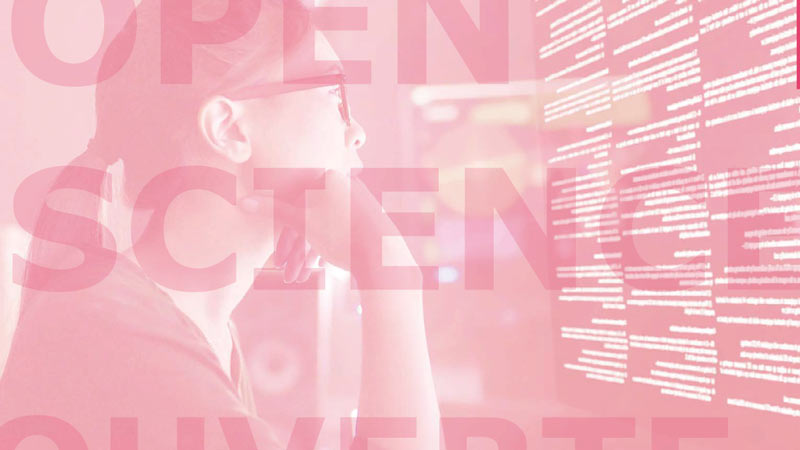Opening up science to society, and giving everyone free access to research publications and data: this is what the University of Lille, a pioneer in this field, is striving to achieve, as set out in its roadmap.
The University of Lille is committed to an ambitious policy of open research as part of the global open science movement. In 2018, it created an open institutional archive, LillOA, and launched several preliminary initiatives in the field of research data management, followed by a roadmap in 2021. It is also affirming its commitment to the development of open science through proactive involvement in the ecosystem that underpins it, by supporting initiatives that promote open science and participating in collective efforts at a local, national and European level.

Roadmap for open science
Making publications freely accessible
The university encourages its researchers to make their publications accessible and supports innovative initiatives to make them available to a wider readership.
By publicising and disseminating its scientific output
via an open archive, LillOA
LillOA is linked to the HAL national archive (hAL portal of the University of Lille).
‘As of 1 January 2018, the University of Lille requires all researchers affiliated with one of the university’s research units to systematically file their scientific work in the University of Lille’s open institutional archive, either by filing it directly or through HAL.’
Extract from the open archive filing charter
Supporting open-access publishing
One of the supporting measures has been the introduction of a fund dedicated to publication costs in 2022, the first of its kind for a French university.
Making data more accessible

The research data produced by Lille’s scientific community is intended to be made available on the basis of the ‘as accessible as possible, as restricted as required’ principle, and in compliance with the ‘easy to find, accessible, interoperable, reusable’ (FAIR) principles.
To this end, the university is supporting research teams, training them and raising their awareness of all the issues involved in managing research data (technical, legal, industrial and ethical issues) in order to develop a culture of data management and sharing.
Supporting and participating in the open science ecosystem
The University of Lille supports initiatives that promote open science and participates in collective efforts at local, national and European level.
Involvement in several organisations
Comité national de la science ouverte (National Committee for Open Science), ORCID France executive committee, ligue européenne des bibliothèques de recherche (European League of Research Libraries; LIBER), Open Access infrastructure for research in Europe (OpenAire), CCSD strategic steering committee, Couperin groupe de travail science ouverte (open science working group; GTSO)
Raising awareness among doctoral students across France
The Ministry of Higher Education, Research and Innovation has charged the University of Lille with producing and monitoring the ‘Passport to Open Science’ for doctoral students.
Setting up a regional platform and accessibility
The university has also secured funding from the Fonds national pour la science ouverte (National Fund for Open Science) between 2021 and 2023 to set up a journal distribution platform in the Hauts-de-France region and contribute to improving the digital accessibility of journals at national level (ORA-HdF project).
Open scientific publishing
The university helps the journals it supports to make the transition to open science and to set up a platform for the open sharing of scientific papers.
The university also intends to develop a document policy to promote this, supporting publishers and initiatives that comply with the principles of open science.
Participatory research
The result of citizens’ contributions to academic research, participatory research is a natural extension of open science. The University of Lille has made the development of such research an integral part of its scientific policy. The initiatives that are already underway, notably via the Boutique des Sciences, involve encouraging, supporting and financing the development of such projects.
Contacts
Joint Documentation Service, Research and Researcher Services Department: chercheurs-scd[at]univ-lille[point]fr


